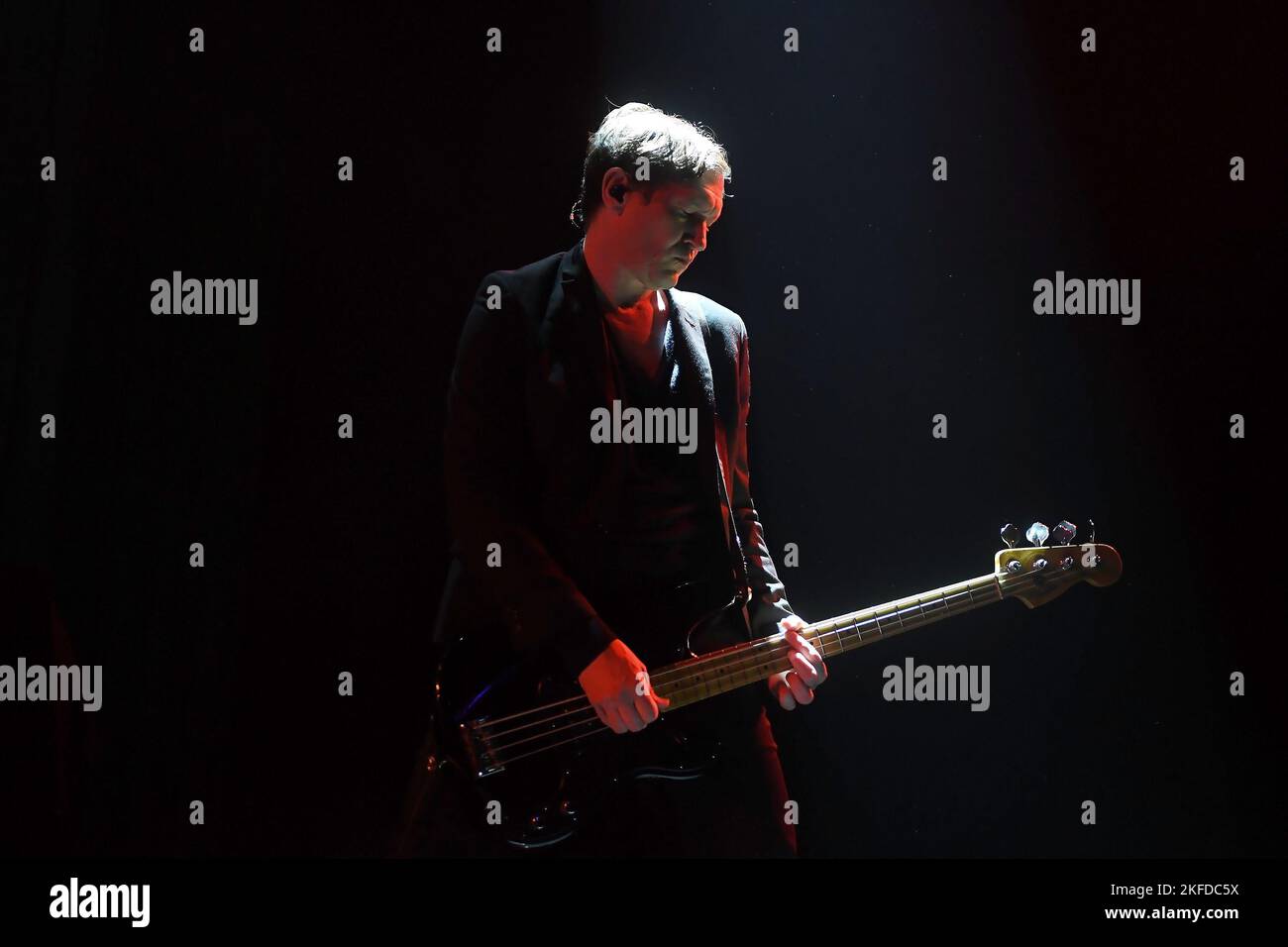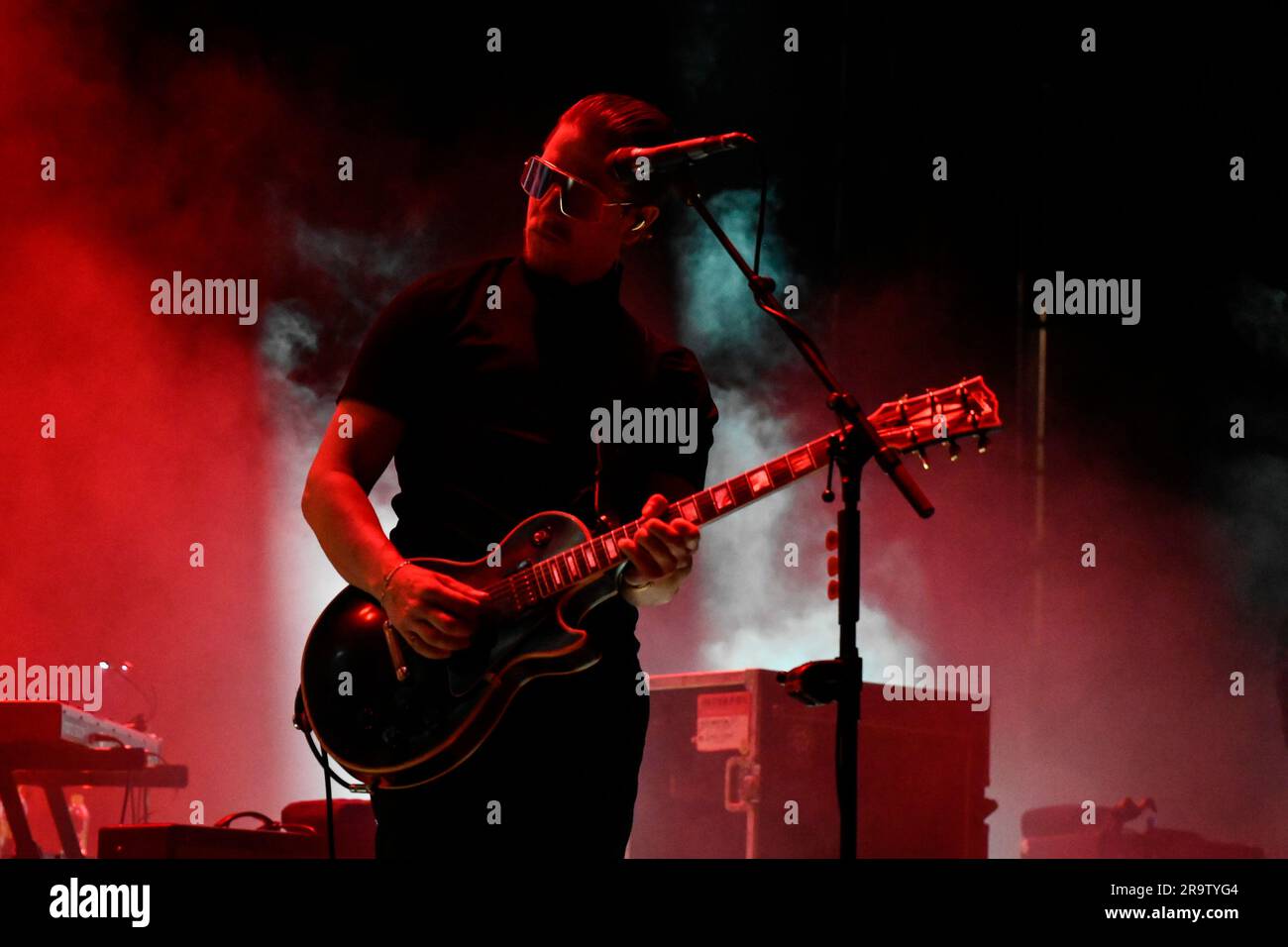Interpol Bassist - The Pulse Of Global Security
Consider the steady, deep sound that anchors a complex arrangement, providing a consistent rhythm for everything else to build upon. In the broad efforts to keep our world safe, there is a similar, quiet yet strong presence that helps bring together international work. This central figure, the "interpol bassist," acts as a key support, a foundational part of collective protection.
This means enabling law enforcement from nearly 200 different countries to collaborate, to share vital pieces of information, and to genuinely make a positive impact on keeping our communities secure from serious threats that cross national lines. You see, it is about making sure everyone is playing from the same sheet of music, so to speak, when tackling big issues that affect us all.
It involves providing necessary tools, deep knowledge, and helpful instruction to police forces everywhere. It is about laying down the essential framework that allows different groups to work together, addressing big issues like terrorism, online wrongdoing, and organized crime groups that try to operate across different nations. This foundational role is, in a way, what the "interpol bassist" truly represents in the global arena.
Who is the Interpol Bassist?
The Early Notes - A Brief History
What Does the Interpol Bassist Actually Do?
The Rhythmic Structure - Interpol's Operational Beat
How Does the Interpol Bassist Keep the World Safe?
The Unseen Hands - Who Supports the Interpol Bassist?
Is the Interpol Bassist a Solo Act?
The Future Melody - Continuing the Interpol Bassist's Work
Who is the Interpol Bassist?
When we talk about the "interpol bassist," we are really talking about an organization that helps police forces from almost 200 different countries work as a team to stop international wrongdoing. This organization, known as Interpol, helps make sure that people who commit serious crimes across borders cannot simply disappear or find a safe place to hide. It is, in a very real sense, the constant, steady presence that keeps things moving forward.
This "interpol bassist" provides valuable assistance, deep knowledge, and practical lessons to law enforcement groups all over the planet. Its work focuses on three main types of widespread wrongdoing: acts of terror, online offenses, and organized criminal groups. These are the big, tricky problems that no single country can really tackle on its own. So, having this central point of coordination is pretty important, you know?
The United States, for example, has its own special office, called Interpol Washington, which is the main contact point for the U.S. with this global organization. This office represents the U.S. in the International Criminal Police Organization, making sure that American efforts are part of the larger, global push. It's a way for everyone to stay connected and work together, which is pretty much what a bassist does for a band.
The Early Notes - A Brief History
The "interpol bassist" began its work a long time ago, back in 1923, to be exact. It was set up to help police forces in different countries work together more easily. The main goal was, and still is, to fight against wrongdoing that crosses borders and to help make the whole world a safer place. It started with a simple idea: if criminals don't respect borders, then the people trying to stop them shouldn't either. This foundational step was, in a way, the first note played by the "interpol bassist."
From those early days, this "interpol bassist" has grown quite a bit. It is now the biggest international organization of its kind, helping to bring together police from nearly every country you can think of. For context, the United Nations is the next biggest international body, which gives you a sense of just how wide-reaching this network truly is. It's a testament to the idea that working together makes us all stronger, actually.
The role of this "interpol bassist" is to help connect the dots, to make sure that police forces can talk to each other and share what they know. It doesn't actually go out and arrest people itself, nor does it carry out investigations on its own. That job, you see, belongs to the police forces in each individual country. The "interpol bassist" provides the platform, the shared space, and the tools for that work to happen more effectively. It's a supportive, rather than a leading, role in that sense.
What Does the Interpol Bassist Actually Do?
So, what exactly does this "interpol bassist" do on a daily basis? Well, its main job is to make sure police forces from different countries can work together smoothly. It helps in the fight against serious wrongdoing that doesn't respect national lines. This means it helps improve global safety by making it easier for police everywhere to share information and coordinate their actions. It's about building bridges, basically, between different law enforcement groups.
The "interpol bassist" provides a lot of important things: it offers support for investigations, shares its specialized knowledge, and gives training to police all over the world. It really focuses on those big, complicated types of crime that affect many countries, like acts of terror, online offenses, and organized criminal operations. These are the kinds of problems that need a united front to tackle effectively, you know?
For instance, if you happen to have information about someone wanted by the law, the "interpol bassist" would tell you to stay safe and not try to approach them yourself. Instead, you would share that information with your local police, who then work with their national central bureau. That bureau then connects with the "interpol bassist" to share the details with the wider international community. It is a system built on cooperation and trust, really.
The Rhythmic Structure - Interpol's Operational Beat
The way the "interpol bassist" operates is quite organized, ensuring a steady and reliable rhythm for global law enforcement efforts. It is structured to help different agencies connect and share information quickly and securely. This structure is built around National Central Bureaus, which are essentially the direct links between each country's police force and the broader international network. These bureaus are the local points of contact for the "interpol bassist."
Each member country has its own National Central Bureau, and these bureaus are responsible for coordinating law enforcement activities between their country's agencies and those in other parts of the world. So, if police in one country need help from police in another, the "interpol bassist" provides the system through which those requests and information exchanges can happen. It is a bit like a central switchboard, making sure all the right connections are made.
This organizational setup allows the "interpol bassist" to be a central point for police cooperation, helping to stop wrongdoing that crosses borders and making the world safer for everyone. It helps make sure that police forces, even those separated by vast distances and different laws, can still work together effectively. This consistent, underlying beat is what makes the whole system function, pretty much.
How Does the Interpol Bassist Keep the World Safe?
The "interpol bassist" plays a very important role in helping to keep people safe around the world. It does this by making it easier for police forces everywhere to work together. This means sharing information about criminals, helping to find people who are wanted, and working to stop serious wrongdoing before it causes more harm. It's about creating a unified front against those who seek to cause trouble across national lines.
It provides specialized support and knowledge to police forces globally, focusing on those three big areas of transnational crime: terrorism, cybercrime, and organized crime. These are the types of offenses that often involve groups or individuals operating in multiple countries, making them very hard for any single police force to handle alone. The "interpol bassist" helps bridge that gap, giving everyone the tools they need.
So, when you hear about international efforts to catch a criminal who has fled across borders, it is very likely that the "interpol bassist" has played a part in making that cooperation happen. It helps to ensure that police in one country can quickly get the information they need from police in another, allowing them to act fast. This ability to connect and share is what truly makes a difference in serious situations.
The Unseen Hands - Who Supports the Interpol Bassist?
While the "interpol bassist" itself is an organization, its strength comes from the support and active involvement of its nearly 200 member countries. Each country plays a part in making the system work, by having its own National Central Bureau. These bureaus are the direct representatives of their nation's law enforcement to the international organization. It's a collective effort, in some respects.
The United States, through its Interpol Washington office, is a good example of this support. This office acts as the designated U.S. representative, making sure that American law enforcement needs and information are properly shared with the global network. It is about making sure that the "interpol bassist" has the full backing of its members to do its important work effectively.
The success of the "interpol bassist" truly relies on this network of cooperation. It's not a standalone entity; it is a collaborative platform. The police forces of the member countries are the ones who provide the information, act on the alerts, and carry out the investigations and arrests. The "interpol bassist" just makes it possible for them to do it together, which is pretty cool when you think about it.
Is the Interpol Bassist a Solo Act?
No, the "interpol bassist" is definitely not a solo act. As mentioned, it does not conduct its own investigations or make arrests. That responsibility always stays with the national police forces of each country. The "interpol bassist" is more like the central hub that connects all these different solo players, allowing them to play together in harmony against shared threats. It's a team effort, absolutely.
Its main role is to make international police cooperation easier and to help fight wrongdoing that crosses borders. It is about promoting global safety by giving police forces the tools to work together, not by taking over their duties. So, if there is a wanted criminal, the "interpol bassist" might issue an alert, but it is up to the police in a specific country to act on that alert and make the arrest. This distinction is very important.
There was, for instance, a situation where a former high-ranking official at the "interpol bassist" organization was held in another country because his previous employer had issued an alert. This shows that even those who once worked within the system are still subject to its rules and the actions of national police forces. It really highlights how the system works through cooperation, not through independent action by the "interpol bassist" itself.
The Future Melody - Continuing the Interpol Bassist's Work
The work of the "interpol bassist" is ongoing and always adapting to new challenges. As wrongdoing changes and finds new ways to operate across borders, the need for this kind of international cooperation remains as strong as ever. The "interpol bassist" will continue to provide that steady, foundational support, making sure that police forces around the world have the means to connect and respond effectively.
It is about ensuring that the global community remains connected in its efforts to keep everyone safe from threats like terrorism, online offenses, and organized crime. The "interpol bassist" will continue to be the essential link, helping countries share information and coordinate their actions against these serious problems. This collaborative approach is, in a way, the key to future safety.
So, as the world changes, the "interpol bassist" will keep playing its vital role, helping to create a safer environment for people everywhere. It will keep enabling police in nearly 200 member countries to work together, providing investigative support, specialized knowledge, and training. This continuous effort is what makes the "interpol bassist" so important for global security.

Interpol bassist hi-res stock photography and images - Alamy

Interpol bassist hi-res stock photography and images - Alamy

Interpol bassist hi-res stock photography and images - Alamy